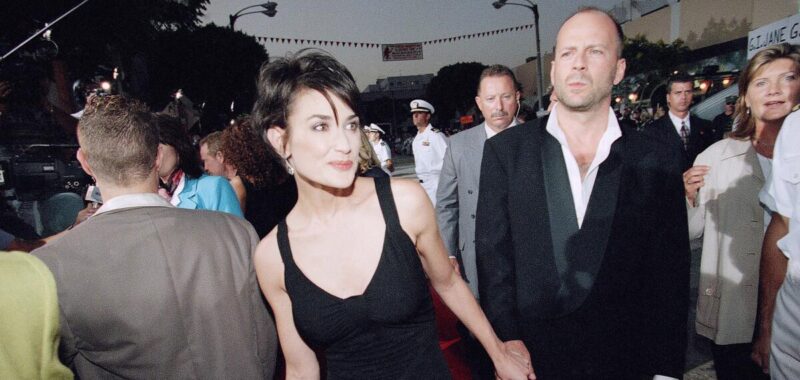Demi Moore has offered an update on Bruce Willis’ health, more than two years after the “Die Hard” actor was diagnosed with aphasia.
Willis, 69, was diagnosed with aphasia, a cognitive disorder, in March 2022. Less than a year later, he was diagnosed with frontotemporal dementia, a degenerative brain disease that currently has no cure.
Moore said Sunday at the 2024 Hamptons International Film Festival that her ex-husband “is stable.” The star of “The Substance,” who accepted the fest’s career achievement in acting honor, shared her update during a conversation with journalist Alina Cho, a member of the festival’s advisory board. While Willis’ health may be steady, Moore said she also understands “the disease is what the disease is.”
“I think you have to be in real deep acceptance of what that is,” Moore said, according to People.
News of Willis’ aphasia diagnosis coincided with his family’s 2022 announcement that he would retire from acting.
Earlier this year, Moore spoke candidly about how she copes with Willis’ health issues. In a January conversation with Andy Cohen, she encouraged loved ones of aphasia sufferers to stay in the present. She echoed that sentiment Sunday, telling Cho and her Hamptons audience that “when you’re holding on to what was, I think it’s a losing game.”
“But when you show up to meet them where they’re at, there is great beauty and sweetness.”
Willis has been married to Emma Heming Willis since 2009. But clearly, affection remains between Moore and Willis, who married in 1987 and divorced in 2000. The two actors share daughters Rumer, Scout LaRue and Tallulah. Moore said Sunday that she recently paid a visit to Willis, Rumer and her toddler granddaughter Louetta. Moore reveled in “being able to share with whatever we have, for however long we have it.”
Moore, 61, received her HIFF honor amid her buzz-worthy turn in Coralie Fargeat‘s body horror film “The Substance,” a stomach-churning yet insightful meditation on aging and stardom.
“That deep reminder of appreciating who you are, as you are, where you are, just resonated more as the process went along,” Moore told The Times recently. “And not just the external. Really, all of those internal things of who we are that we often can overlook. And the journey of what it’s taken to get where you are.”

